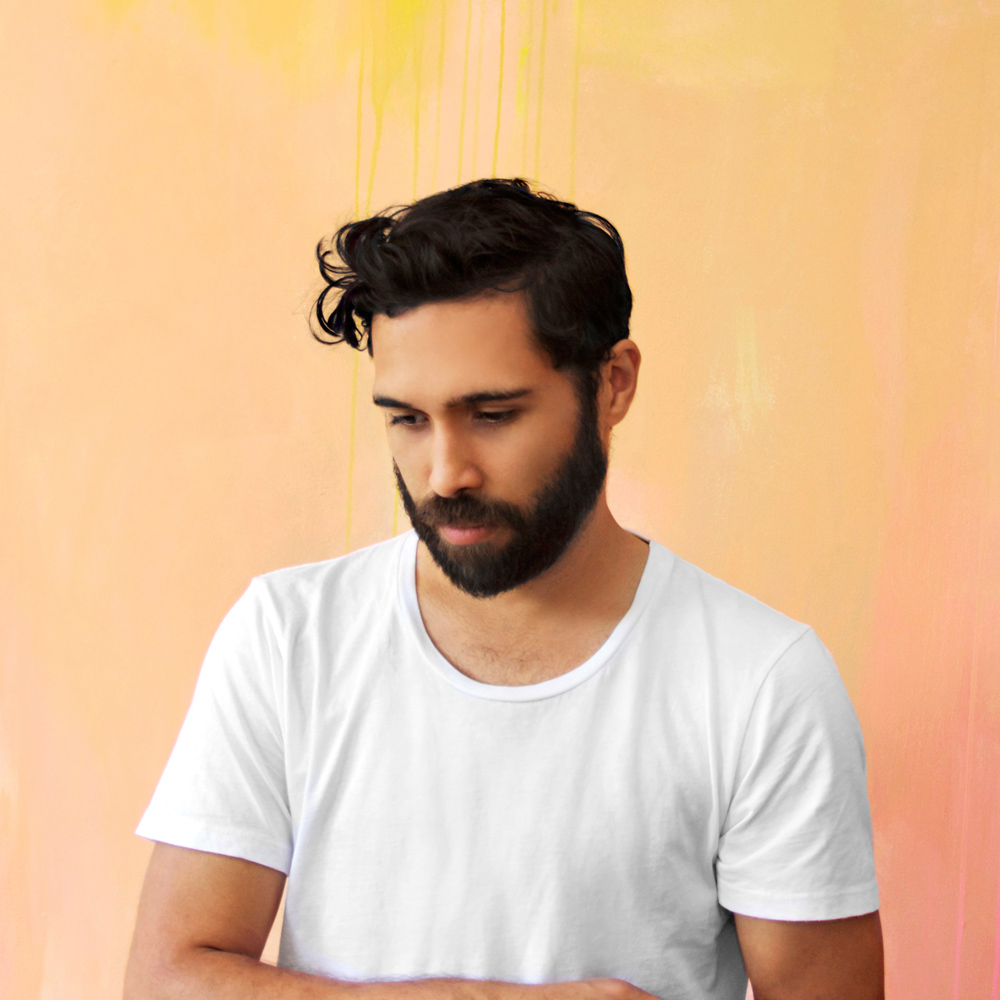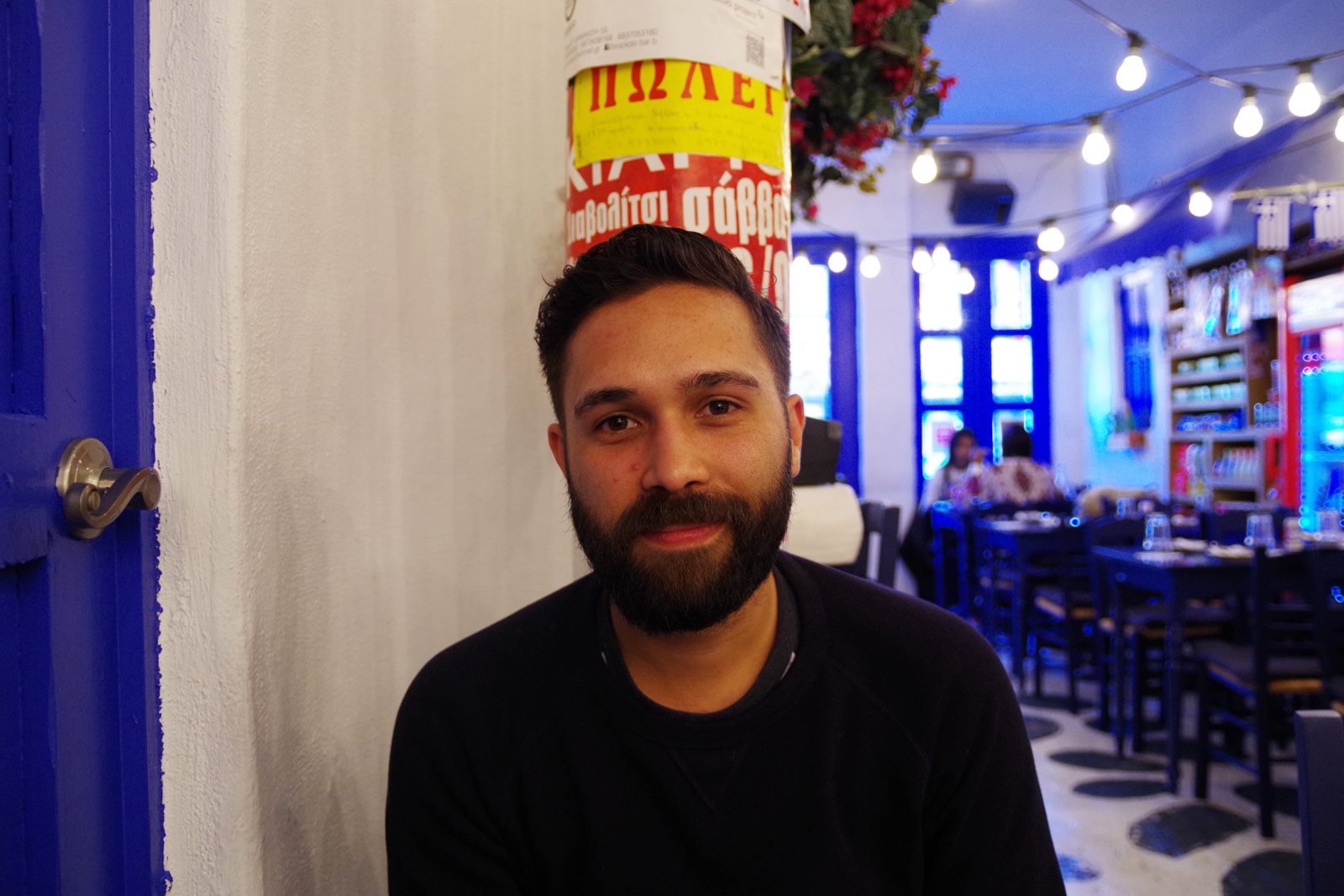Interview: Cinematic Folk Musician Ben Abraham
Talking genre, the Melbourne music scene and inspiration


The title singer/songwriter can mean a great deal to a world’s worth of musical listeners. And while Ben Abraham fits under that catch-all, there’s something about his music that places him elsewhere. Abraham has been referred to as a cinematic folk artist and a listen of his debut album Siren explains why. Each track tells a tale, layered lyrically and sonically. Delicate moments yield themselves to escalation of all sorts. His voice is lovely, but it’s the orchestration surrounding it that paints a bigger picture. With so many poetic music-makers out there, it’s tough to stand out. Abraham does because of his inherent understanding of music, and we met with the Melbourne-based artist on our turf (at NYC’s Souvlaki GR) to get more insight.
Your music has been described as cinematic folk. What does that mean to you?
I don’t know who came up with that. It was either one of my friends or a producer I worked with. For me, genre is such a frustrating thing. There’s a great Nico Muhly blog post on that. He talked about his experience where someone came said, “What’s your genre? You need to tell me!” and he sort of responded with, “I’m the artist; it’s my job to create. It’s your job to interpret it or categorize it.” My frustration is that I don’t want to call myself a folk musician. People think of Bob Dylan. You also don’t want to say you’re a pop musician. So, cinematic folk I liked because the concept of being cinematic is about narrative—narrative with scope. I think when I listen to these songs, there are simple narratives but there’s a scope to it all where they live in their own universe. That’s aesthetically, but also lyrically. People need it, they need genres. If we get into the semantics of it, cinematic folk doesn’t make a lot of sense, but it’s been very helpful.
What do you cite as inspirations for your work?
People have talked about how personal the album is. It’s personal because as an artist you can’t help but inject your personality into it, but the engine of a lot of the songs is from other people’s lives. I was fascinated by that as a storyteller. As I’ve come into my own as an artist, narrative as a whole—in every aesthetic—has come to inspire me. As does the entire body of an artist’s work. When listening to an entire musician’s contributions it doesn’t just become, “Did you hear that middle eight of that piece? That’s amazing!” I’m more about hearing that section of that piece in light of and in the context of everything else. That’s the kind of the artist I want to be. It’s not about hype taking a track to number one. I’m interested in learning the way people do stuff and why.

Can you talk some about the Melbourne music community that you’ve witnessed and taken part in?
It’s really thriving. The joke in Melbourne is that everyone is in a band. That’s kind of cool. There’s a live venue on every corner. There’s a lot of creativity, in general. I don’t know how it would compare to American music scenes, but the Australian creative stuff has no money. There’s literally no money. It’s as robust a music scene as a population of four million can give. Certainly for musicians, though, it’s the city you want to live in.
Has being a part of that impacted you?
I think because it is so easy to form a community, that’s the best thing. When I first started out, I really looked for a community of musicians… For me, I’m really big into collaboration and Melbourne really benefits that.
Another thing about Australia, that I feel I’ve observed, maybe because we are in isolation and that sort of environment benefits outliers and crazies but sometimes the trap of that can be a lot of aesthetic exploration but not narrative exploration. A lot of the time you hear amazing Aussie producers saying, “I don’t really care about the lyrics. I am just really interested in constructing the sounds.” I’m interested in both of those things. I want to make music in service to telling a story. I learned that making this record.

What was your process in recording this album?
Up until this album I was mostly just recording songs with instruments and voice, and I was intimidated by the process of recording. I worked with these two guys from Melbourne and I learned over the process of production how much more compelling it is when you produce to the narrative of the song. Maybe that’s self-evident, but I had never thought of it. Where, that synth line represents this narrative arch or this emotion. This is super-interesting to me. It’s no longer just about the aesthetics.
What are your musical inspirations? And what were you raised listening to?
This is a hard one for me. I feel like I categorize it when I’m thinking about inspirations. As a singer, I have people who inspire me, like Thom Yorke or Donny Hathaway or Peter Cetera or even Gotye. Thom’s ability to get inside a lyric and change his voice to convey that narrative is what does it for me. With Hathaway, it’s about the emotion he gets through. As a writer, it’s people like Joni Mitchell or Cat Stevens—the way they tell straightforward stories that everyone resonates with. As an arranger, or musically, I am really fascinated by Kate Bush and Feist, or Peter Gabriel. In terms of the whole approach to artistry, it’s people like Sufjan Stevens. When Sufjan takes the stage, he inhabits the space of the song and it’s phenomenal.
My folks raised us in an environment where it was always about the emotional or the spiritual—I never had any sense of cool or not cool
My parents were musicians and I grew up in a musical family. What I love about that is that my folks raised us in an environment where it was always about the emotional or the spiritual. I never had any sense of cool or not cool. It wasn’t until I went to school that I found out that there were bands that weren’t cool to listen to. My dad is Indonesian, and Indonesian as a language and culture is very direct, so the western music they love tends to be direct or literal. I was raised on a lot of Chicago. I know every song back to front. My dad loved The Beatles and James Taylor, and my mom sings as well, but Chicago was the thing growing up.
Ben Abraham’s Sirens is out tomorrow, 4 March, via Secretly Canadian and available in vinyl or CD or on iTunes.
Lead image by David Graver, second image by Camille Javal, final image by Glen Wilkie











